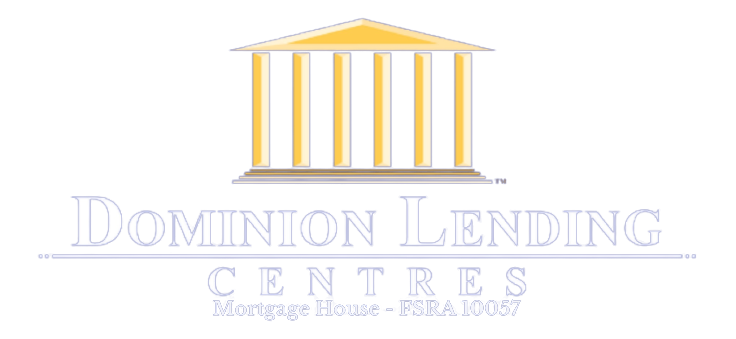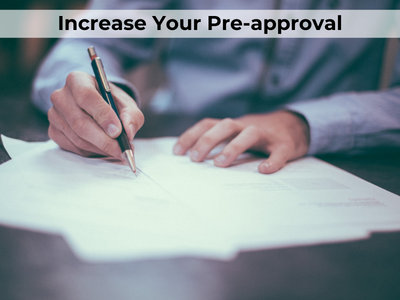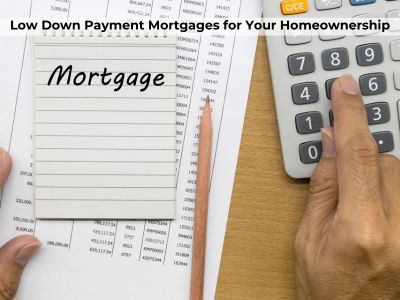Buying a home may be your biggest purchase, and making every decision regarding your purchase can be crucial. The first step to a mortgage is to get pre-approval. Mortgage pre-approval is the price that determines how much money you can borrow for your home purchase. You can ask mortgage lenders Canada for your pre-approval.
There are ways to increase your pre-approval. Higher pre-approval gives you a broad selection of houses.
Tips to increase your pre-approval.
- Find a co-signer or co-borrower
A co-signer with a high income can help you increase your pre-approval. However, finding a co-signer is challenging because their assets are on the line when you fail to meet your mortgage payments. A family member can be an excellent option for a co-signer.
- Improve your credit score
Your lender may increase your pre-approval when you have a high credit score. In addition, you can be guaranteed a much lower interest rate.
- Generate more income
When you have a high income coming in every month, it is more likely that you will get higher pre-approval because it means you’ll be able to afford a larger mortgage with your monthly income.
- Pay off other debts
It is more likely that you’ll get a lower pre-approval if you have a high debt-to-income ratio. Paying off debts like credit cards and other personal loan can help you increase your pre-approval.
- Make a larger down payment
Putting up at least 20% of a down payment can eliminate Private Mortgage Insurance. You can be granted a higher pre-approval if you can afford a 20% down payment. Lenders can increase your pre-approval without mortgage insurance added to your mortgage.
- Talk to another lender
By talking to a different lender, you may find a lender that can give you the highest pre-approval. Have patience because the slight difference between lenders can do more than you think.
–
A pre-approval doesn’t guarantee that you’ll be getting that amount. It will still depend on the home you purchase and the down payment amount. It would be best if you didn’t maximize your credit because there are outside expenses except for the purchasing amount.
This includes:
- Closing costs
- Moving costs
- Ongoing maintenance costs.
Each lender’s policies and terms can vary. Even if you get pre-approved, they can still refuse your mortgage application because you didn’t qualify for their standard.
For the specific product, a borrower must complete a credit application. Lenders may charge you for the application fee, which will add to the expenses. Once completed, the lender will verify your debt-to-income ratio and make a hard inquiry on the borrower’s profile.
Requirements when getting pre-approval:
- Proof of assets
You must provide a W-2 wage statement and tax returns from the past two years.
- Confirmation of income
Bank and investment account statements prove that you can afford the down payment, closing cost, and cash reserves.
- Good credit
Most lenders require a 620 or higher credit score. It also gives you a great deal in a mortgage and a lower interest rate.
- Employment Verification
Some lenders do not confirm your employment to you. They directly contact your employer to verify your work.
- Important documentation
Important documents such as a driver’s license, social security number, and authorization to allow the lender to pull a credit report should be presented to your lender when you apply for mortgage pre-approval.
It may be a bit complicated getting a pre-approval, but it will all be worth it once you have your home title in your hands and call a home your own. This may take a lot of time, and you may be impatient because of all the processes and requirements. Nevertheless, patience is a virtue.
Pre-qualification vs. Pre-approval
Pre-qualification
Pre-qualification is an excellent start before house-hunting. It will estimate how much someone can afford to spend on a home. It also allows you to connect with your broker and learn how mortgages work. Especially if you are a first-time home buyer.
Pre-qualification gives you a ballpark idea of what house price, in what neighbourhood you could buy, and what mortgage product is best for your current situation. What rate type and term may work for your budget. Giving you a chance to adjust your current finances to meet halfway with your down payment and improve your credit score.
Pre-approval
Pre-approval is essential when you start a house-hunting. Often valid for 60 to 90 days. Pre-approval is a more accurate idea of the size of mortgage you can afford. You also can hold your best rate for up to 120 days. It is also quicker and easier to close your mortgage application as you’ve already been pre-checked by a lender.
–
Getting pre-approved by mortgage lenders is more accurate than getting pre-qualified. It will be easier for you to estimate what you can afford.
Conclusion
To sum it up, getting the best mortgage rate in Canada will be your top priority in house-hunting. House-hunting takes work. It is a roller coaster ride of emotions. You’ll get overwhelmed and exhausted along the way, and it is okay.
Rest and go again. It’s okay to take a short break but do not give up. Giving up means ending your dream of having a home of your own. It’s easier said than done but look at the result and the brighter side because it will all be worth it at the end of the day.
Do not make a haste decision; brainstorm with yourself about every decision you need to make, which will give you a better result.




